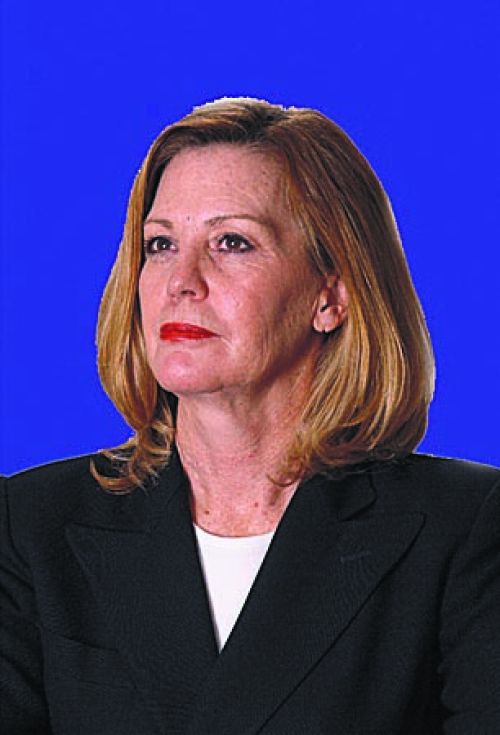
Jones, LeBlanc attend Family Fun Fest
April 10, 2013
Randolph appeals ethics ruling
April 10, 2013Two bills filed in the Louisiana House and Senate that would radically change the status of the board that markets the state’s seafood are whipping up a maelstrom within the $2.4 billion industry it serves.
SB 184, filed by Sen. Gerald Long (R-Winnfield) with a House version filed by Rep. Gordon Dove (R-Houma) would make the Louisiana Seafood Promotion and Marketing Board a mere advisory panel with no control over its own purse. That power would shift to the Louisiana Department of Wildlife and Fisheries, an executive branch agency.
The reaction in many quarters of Louisiana’s seafood industry has been emotional and quick.
“Since 1984 the Seafood Promotion and Marketing Board has developed a track record that makes them well known, and they are pristine,” said Sarah Voisin, co-owner of Houma’s Motivatit Seafood and a newly appointed member of the Board. She is also the widow of the late Mike Voisin, a Louisiana oyster guru and one of the board’s founders. “They have gone through audits and come out squeaky clean every time. They know how to handle money. They know how to market smart. Why fix something that is not broken?”
MONEY GRAB ALLEGED
The marketing board currently has control over $15 million in promotion money from BP, as part of that company’s efforts to address the tarnishing of Louisiana seafood’s image after its 2010 Deepwater Horizon oil spill. Control of that money – and millions more expected to come later – would shift to LDWF, if the bills become law.
Opponents of the bills say they are a power and money grab by LDWF Secretary Robert Barham, who requested that they be filed. Barham and his supporters deny those accusations, stating that the shift would benefit the industry throughout the state.
Examination of correspondence and board minutes, testimony taken by legislative committees, reports from Louisiana’s Legislative Auditor, opinions from the Louisiana Attorney General and interviews conducted over the past three months prove, if nothing else, that questions of power, money and legality have opened deep rifts between LDWF and the promotion board, as well as divisions within the industry itself.
Buttressing the claims of opponents to a LDWF takeover is evidence that Barham was already behind some decisions of how money allocated to the board was spent, contrary to the board’s stated plans, possibly without any legal authority.
Barham denies those allegations as well, and says no wrong was done when he authorized $150,000 in state money from his agency be paid to the New Orleans Saints for a promotional package, after the board had opted to have that payment delayed. The contract with the Saints was signed by Barham on behalf of LDWF, although board members have maintained that the contract – as all prior such contracts – should have been between the Saints and the Seafood Promotion and Marketing Board.
Mike Voisin – no longer a member of the seafood board but still a dean of the industry – exchanged harsh words with Barham over the Saints deal shortly before his death last month, according to Sarah Voisin.
“He expressed concern that a biologist, LDWF’s Randy Pausina, negotiated a marketing deal,” Sarah Voisin said.
BARHAM DEFENDED
Criticism of Barham and of the bills is not universal within the state’s seafood industry.
Danny Babin, a partner in Gulf Fish on La. 311 in Houma, supports the legislation, and expresses faith in Barham’s desire for his agency to oversee the seafood board.
“I have not read all of the bills in their final form,” Babin said. “I don’t think it is a power grab by Wildlife and Fisheries. I know Robert (Barham) well enough and know the people well enough to know this is not a power grab. The authors of the bills feel this is a safe place to put this money.”
Louisiana fishermen – who are regulated and policed by LDWF – have been some of the strongest initial opponents of the bills. Their relationship with the promotion board has been especially strong through the years, and in particular after the oil spill. Now that LDWF and the Board appear at odds, some fishermen say they support keeping the status quo but are afraid to express their opinions publicly.
“Our livelihoods could get turned upside down in a minute if we get a mark put on us by the agency that enforces us,” one shrimp fisherman said.
From its inception, the 14-member board has brought together the mosaic of people whose livelihoods depend on the seafood industry.
Appointed shrimpers, crabbers, seafood processors, crawfish buyers and oystermen – among others – authorized money to be spent on the promotion of their products. Primarily, those dollars came from gear fees charged to fishermen by LDWF or license fees charged to processors or docks.
“Anyone in the industry who pays a commercial license fee, a portion of it comes back to the board,” said Executive Director Ewell Smith.
Budget authority is provided by the Legislature for the board to spend its dollars; the budget may also include money from grants.
“Don’t Kid Yourself”
The board generally has about $1 million per year to work with, from the fees paid by fishermen and processors as well as some grants. The actual dollars remain within a sub-category of the LDWF budget.
When a contract payment is due or advertisement purchased, the board gets the bill.
“Our staff reviews and we sign off on it, two signatures from our office, mine and someone else,” Smith said. “It then goes to LDWF for a sign-off. The check is then processed through regular state channels.”
Smith earns $85,000 and is answerable to the board, which currently retains hiring authority. Hired 12 years ago, he undergoes an annual board review.
The bills proposed by Dove and Long would have the director serving at the pleasure of the Secretary of LDWF. Fishermen say that would disempower them severely.
“This board was established to be the voice of our industry,” said St. Bernard Parish oysterman Brad Robin. “Why would you take away all that we have worked for? Why would you take the ability to make our opinions count away?”
Robin, whose oyster business was pummeled first by Hurricane Katrina and then by the BP oil spill, said he is proud of the job the board has done keeping the industry alive. Smith’s leadership, he said, coupled with the board’s wisdom, has resulted in greater visibility than ever before. He does not have faith that an agency of enforcers and biologists can handle the complex marketing requirements of Louisiana seafood, particularly in a time of crisis.
If the board is reduced to an advisory body that merely gives LDWF its opinions, Robin said, he fears those opinions won’t count.
“This is about control of the money,” Robin said. “There has never been money like this to work with, and it is about money. Do not kid yourself.”
George Barisich, president of the United Commercial Fishermen’s Association, a shrimper and oysterman, has not always agreed with the board. And while he has confidence in Barham to make wise decisions, he is not certain that the experience with future LDWF secretaries will be the same.
“If it’s Barham I have no problem with it. But if you get someone else you are in as bad a shape as you ever were,” Barisich said. “I would prefer the board as it was, have enough good people on the board who are representatives of the real fisheries, not a loaded board. It is good if you have a good and fair secretary taking the advice of a good and fair board.”
Motives are Questioned
A major lightning rod for criticism of the board has been its former chairman, New Orleans seafood dealer Harlan Pierce.
Three members of the board – Kim Chauvin and Andy Gibson of Terrebonne Parish, both in the shrimp business, and Stephen Menville, a crawfisherman – took Pierce to task last year, alleging that he made decisions that would benefit his business at the expense of the overall industry’s best interests. Complaints were made to Barham and other state officials. Particularly, Pierce was criticized for having the board pay chefs he routinely did business with, without recusing himself from the decisions. He ran the board, some members said, as if it was his own private fiefdom. By extension, Smith was criticized for not standing up to the chairman.
Pierce has denied those allegations, and maintains everything he has ever done was for the good of the industry.
Emails from Chauvin, Gibson and Menville to Barham made clear their opposition to Pierce’s leadership style, though they complained that nothing was done by any agency.
Barham did request an advisory opinion from the Louisiana Board of Ethics. The Ethics Board ruled that members of the seafood board who are in the seafood business must not take advantage of promotional opportunities the body approves for funding, as that would result in an apparent if not actual conflict of interest.
Several board members balked at the ruling, asking how it would be possible for them to serve on the board and thus deny their businesses life-saving benefits.
Not everyone felt that way.
“By serving on the board there is a sacrifice,” said Chauvin, who was not reappointed in 2013. “We knew it when we got there. So to change your opinion of it now because you want to reap benefits is ludicrous. Did I miss out on some benefits because I sat on the board? Yes I did. But it was my job.”
Chauvin served for four years on the board, and says membership should be rotated, so she is not chagrined by not being reappointed.
“I think it’s good to have new blood on the boards,” she said. “Otherwise you get stale, you get stagnant, and you begin to think it’s your board, and not the industry’s board.”
For Their Own Good
Asked to state the reason he requested the bills to be filed, Barham said the ethics issue – and a desire to protect board members from potential violations – was what motivated him to do so.
“This is for the protection of the board members themselves,” Barham said. “I don’t want to manage how they run the money, just to operate in a way that doesn’t run afoul of the ethics laws.”
By example, Barham said if a member was to attend the Boston Seafood Show – one of the biggest trade events in the seafood industry nationally – and aspects of Louisiana’s presentations there were approved by the board, members who might take part in the show could be violating ethics laws.
If the board was merely an advisory body, Barham said, with LDWF doing the actual contracting and securing of programs for promotion, then there would be no such danger. The Dove and Long bills, Barham said, would allow the LDWF to act as a “firewall” between the Board and the potential of ethics violations.
Current and former board members said in interviews that they are trained in ethics laws when they are sworn in, and that they had never asked for such protection.
The idea that his payment of $150,000 due the New Orleans Saints before the board approved the money to be released was a power play of some sort, Barham said, is not correct.
“I paid the bills our attorneys advised us to pay,” he said. “Bills came due and we paid them.”
“Tired of Fighting”
Government issues and responsibilities, Barham said, are different from those of private industry. He wants to eliminate conflict, he said, not create it.
For anyone to state that the House and Senate bill represent a power or money grab by him or his agency, Barham said, is a misrepresentation.
The brunt of the seafood industry’s wrath for now is falling on the sponsors of the bills, Dove and Long.
Sarah Voisin has spoken with both and voiced her displeasure. Fishermen are making their views known on Facebook pages. Some have said they will come in buses if need be to the Capitol during the current session, to voice their views to preserve what they maintain is a valued and successful way of doing business on behalf of Louisiana seafood.
“I filed my bill because as the chairman of the House Natural Resources Committee I must do so if the Secretary asks me to,” said Dove, whose district is chock full of fishermen, many of them riled.
Barham, Dove said, came to him and asked for the bill. He has condensed his House version with Long’s Senate bill, and it does not appear under Dove’s name on his list of instruments.
“I have an enormous professional opinion and respect for Robert Barham,” Long said, explaining why he can stand behind his bill, in addition to his duty to file it as chairman of the Senate Natural Resources Committee.
Since hearing from fishermen and others in the seafood industry critical of the measure, Long has pledged to not move forward with his bill until he has had a chance to meet with them.
The bill, he said, will not move forward until a consensus is built.
Among the voices he may hear from is that of Trudy Luke, a Houma crab dealer who sits on the state’s Crab Task Force, whose family is made up of fishermen who routinely work the waters of Terrebonne Parish.
“They have no business trying to do this,” Luke said. “They are just trying to take the money and they will end up sticking it with the recreational fishing. I am tired of fighting these people.”
Mike Blanchard, a Chauvin shrimp boat captain and 45-year veteran of the industry, sorts his catch aboard his vessel, Capt. Roy, in the Robinson Canal in this file photo. Changes to the Louisiana Seafood Promotion and Marketing Board have many in the industry up in arms.















